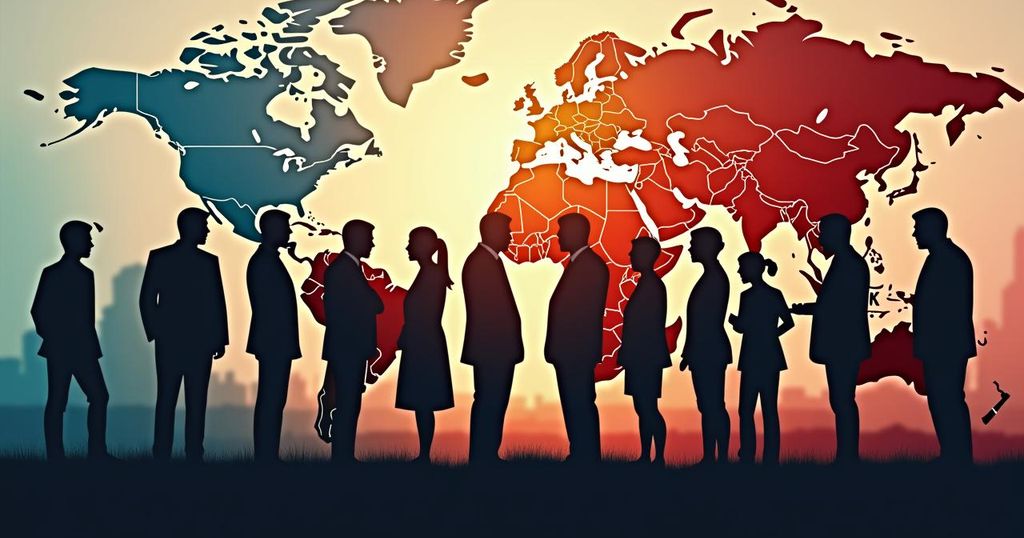Asia-Pacific Leaders Urge Global Action on Climate Crisis at UN General Assembly

At the UN General Assembly, Asia-Pacific leaders emphasized the urgent threat of climate change to their nations and called for immediate global action. They highlighted the need for financial support from developed countries to enhance climate resilience, noting that inaction risks further marginalization of vulnerable states. The leaders underscored the existential nature of the threat, as their cultures and identities are increasingly endangered by rising sea levels and extreme weather events.
During a recent session of the United Nations General Assembly, leaders from the Asia-Pacific region underscored the urgent threat posed by climate change, emphasizing that their nations are among the most vulnerable. Prime Ministers from countries including Vanuatu, Papua New Guinea, Samoa, the Lao People’s Democratic Republic, Tuvalu, and Tonga collectively advocated for heightened global responsibility and immediate action to combat climate change effects, which disproportionately afflict their regions. They highlighted the critical need for financial assistance and support from the international community to enhance climate resilience and sustainable development. Charlot Salwai Tabimasmas, Prime Minister of Vanuatu, pointed out the harmful consequences of industrialized nations’ carbon emissions, noting that Vanuatu faces a precarious future in the wake of climate change. He stated, “If the current carbon emissions trajectory continues its dangerous path, Vanuatu stands zero chance to measure up to its recently gained status as a developing state.” James Marape, Prime Minister of Papua New Guinea, criticized the destructive notion of “survival of the fittest” that prioritizes resource extraction over sustainability, which compounds poverty and environmental degradation. Despite facing economic challenges, he reiterated Papua New Guinea’s commitment to preserving its natural ecosystems, while highlighting the importance of global climate finance. Tuvalu’s Prime Minister, Feleti Penitala Teo, expressed concern over alarming sea-level rise forecasts threatening the nation’s very existence, stating that over 50 percent of Tuvalu could be flooded by 2050 if decisive action is not taken. Moreover, Fiame Naomi Mata’afa, Samoa’s Prime Minister, called for substantial investments to effectively address climate change and its resultant challenges like food insecurity and forced migration. She stressed the pressing need for immediate and ambitious action to uphold international commitments toward climate resilience. Prime Minister Sonexay Siphandone of the Lao People’s Democratic Republic highlighted that even those nations contributing the least to carbon emissions face severe repercussions from climate change and urged increased support for adaptation measures. Finally, Siaosi ‘Ofakivahafolau Sovaleni, Prime Minister of Tonga, warned that the ongoing climate crisis represents a critical threat to Pacific identities and cultures, marking it as an acute challenge that must be addressed with urgency. He noted, “this is not just about losing land – it is about our very identities, losing heritage and culture.” The leaders of the Asia-Pacific region continue to advocate for a unified and decisive global response to climate challenges, emphasizing that future generations depend on immediate actions taken today.
The article presents insights from a recent UN General Assembly session where leaders from vulnerable Asia-Pacific nations conveyed the urgent threats posed by climate change. The leaders expressed a unified call for global action, emphasizing the need for collaboration to tackle the adverse effects of climate change which are felt more acutely by their nations. Their statements reflect the dire consequences of inaction and the necessity of financial and operational support from more developed countries to ensure resilience and sustainable development in the face of climate crises.
In conclusion, the voices of Asia-Pacific leaders at the UN General Assembly highlight the urgent need for global responsibility in addressing climate change. They articulated the disproportionate impacts faced by their nations, calling for robust international support to mitigate these threats. The collective urgency presented by leaders like Prime Ministers Tabimasmas, Marape, Teo, Mata’afa, Siphandone, and Sovaleni offers a critical perspective on the existential challenges posed by climate change, underscoring that the survival and identity of their nations are at stake without immediate and decisive action by the global community.
Original Source: news.un.org








